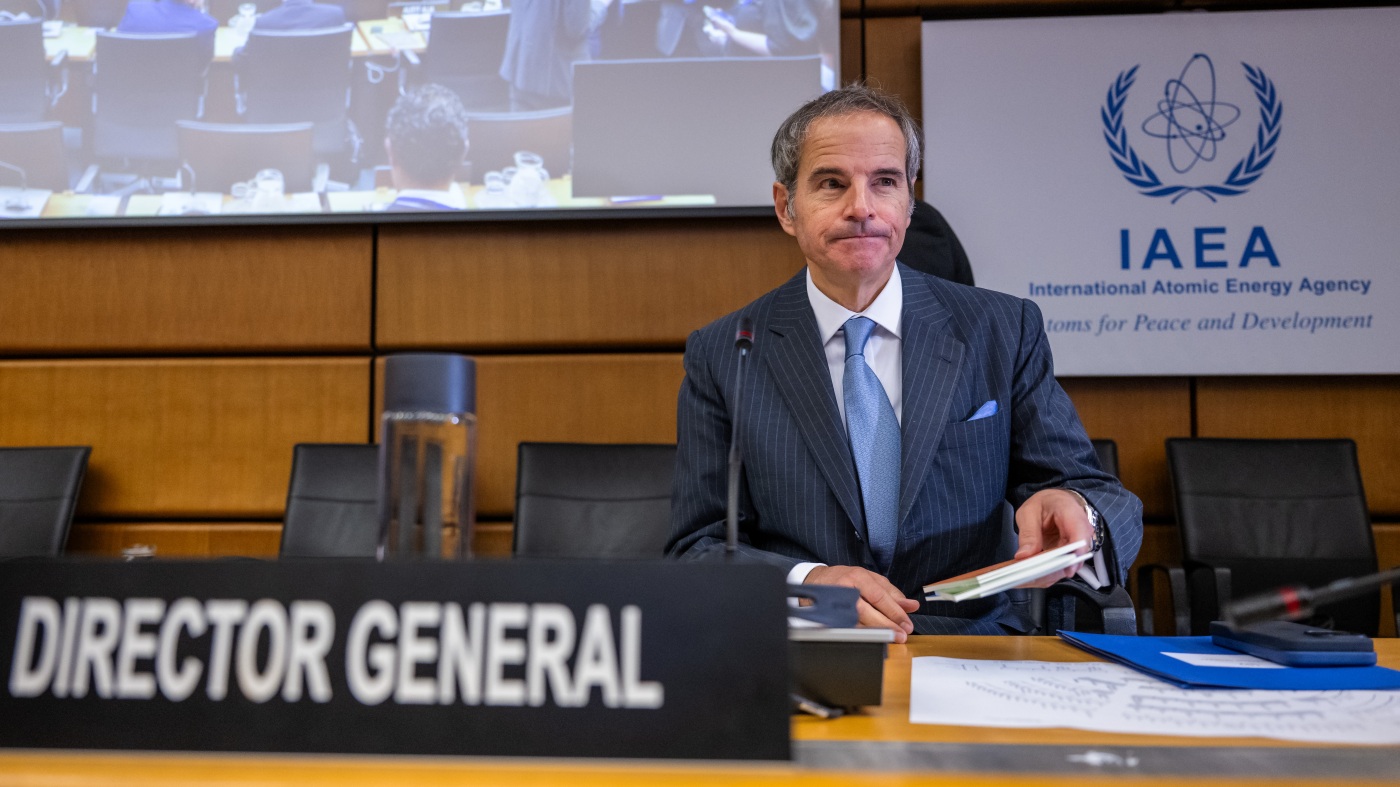U.N. Nuclear Chief: Iran Could Resume Uranium Enrichment in Months, Despite U.S. Strikes
Vienna, Austria, June 29, 2025 — Rafael Grossi, Director General of the International Atomic Energy Agency (IAEA), warned that Iran could resume enriching uranium to near-weapons-grade levels within months, contradicting U.S. claims that recent airstrikes “obliterated” Iran’s nuclear program. Speaking on CBS’s Face the Nation on June 28, 2025, Grossi highlighted Iran’s retained technological expertise and industrial capacity, raising concerns about its ability to rebuild after U.S. and Israeli strikes on three key nuclear sites—Fordo, Natanz, and Isfahan—on June 21. The statement underscores ongoing tensions over Iran’s nuclear ambitions and the effectiveness of military actions to curb them.
Grossi’s Assessment and the Strikes
What: Grossi told CBS that Iran’s nuclear facilities sustained “severe but not total” damage from U.S. strikes, part of “Operation Midnight Hammer,” which used B-2 Spirit bombers and Tomahawk missiles to target Fordo’s underground enrichment site, Natanz’s centrifuge facility, and Isfahan’s nuclear complex. He estimated Iran could restart enrichment with “a few cascades of centrifuges” in months, potentially less, due to its sophisticated nuclear knowledge.
When and Where: The strikes occurred on June 21, 2025, following Israel’s initial attacks on June 13. Grossi’s remarks aired on June 29, based on an interview recorded in Vienna.
Why: Iran’s stockpile of 408 kg (900 lbs) of 60% enriched uranium, reported by the IAEA in May 2025, could be enriched to weapons-grade (90%) in weeks, enough for up to 10 bombs, per experts like David Albright. Satellite imagery from June 20 showed trucks at Fordo and Isfahan, suggesting Iran moved uranium before the strikes, per NPR and The New York Times.
How: Iran’s advanced centrifuges and expertise remain intact, despite damaged infrastructure. Grossi noted, “The knowledge is there. The industrial capacity is there,” emphasizing Iran’s resilience.
Context of Iran’s Nuclear Program
Background: Iran’s nuclear program has been contentious since it breached the 2015 Joint Comprehensive Plan of Action (JCPOA) limits after the U.S. withdrawal in 2018. By May 2024, Iran was enriching uranium to 60%—far above the 3.67% JCPOA cap—at Fordo and Natanz, with enough material for multiple bombs, per the IAEA. A third “secure” enrichment site was announced on June 12, 2025, after an IAEA censure, escalating tensions.
U.S. and Israeli Claims: President Trump claimed the strikes “totally obliterated” Iran’s nuclear capabilities, a view echoed by Defense Secretary Pete Hegseth. However, a leaked Pentagon report and experts like Jeffrey Lewis of the Middlebury Institute suggest the program was set back only months, with uranium possibly relocated beforehand.
Key Quote: “One cannot claim everything has disappeared,” Grossi said, countering Trump’s narrative. “Iran is a very sophisticated country in terms of nuclear technology.”
Challenges and Diplomacy
Current Status: Iran has banned IAEA inspectors since the strikes, citing fears of further attacks, a move Grossi called a step toward exiting the Nuclear Non-Proliferation Treaty. Negotiations for sanctions relief in exchange for halting enrichment, led by Trump’s envoy Steve Witkoff, have stalled, with Iran’s Foreign Minister Abbas Araghchi insisting on retaining enrichment rights.
Criticism and Risks: European diplomats, per The Guardian, see Grossi’s warning as a call for renewed talks to prevent proliferation. Iran’s Supreme Leader Ayatollah Khamenei downplayed the strikes’ impact, while military chief Abdolrahim Mousavi vowed forceful retaliation if attacked again, per BBC. X posts, like @amanpour’s, highlight the “clear setback” but note surviving enrichment capabilities.
Accessing the Story
- NPR: www.npr.org for Grossi’s full interview and strike analysis.
- CBS Face the Nation: www.cbsnews.com for the June 28 broadcast.
- The Guardian: www.theguardian.com for Grossi’s remarks and diplomatic context.
- X: Search “Rafael Grossi Iran uranium 2025” for reactions, but verify claims.
What This Means
Grossi’s warning that Iran could enrich uranium again in months highlights the limits of military strikes in curbing its nuclear ambitions, challenging Trump’s claims of a decisive blow. With Iran’s expertise intact and uranium possibly preserved, the risk of escalation or a regional arms race persists, especially as Saudi Arabia and Turkey eye nuclear capabilities, per Wikipedia. Publishers should track IAEA reports and U.S.-Iran talks, expected to resume next week, for updates. Readers planning to follow this issue should prioritize credible sources like NPR and avoid unverified X claims, such as @MarioNawfal’s exaggerated bomb timeline, which lacks evidence. This development signals a critical juncture for global security, demanding diplomatic urgency to prevent further escalation.
